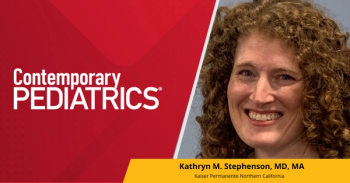
Treating pediatric obesity
In part 1 of our obesity series, Katherine H. Saunders, MD, DABOM, discusses methods of treating pediatric obesity, including medicines approved by the FDA and the advantages of Intellihealth.
In this Q&A, Katherine H. Saunders, MD, DABOM, goes over important factors in treating pediatric obesity, such as treating it like a chronic disease and having family participation during treatment. Saunders is an obesity medicine physician, but not a pediatrician.
This is part 1 of our 3-part series on pediatric obesity. Click
1. What is the definition of pediatric obesity?
Pediatric obesity is defined as a body mass index (BMI) at or above the 95th percentile for children and teens of the same age and sex.
2. What are the advantages of treating obesity like a chronic disease?
Obesity IS a chronic disease, so it needs to be treated as a chronic disease. Some children with obesity can lose weight through diet and exercise, but many can't. Effective treatment requires a comprehensive care plan that addresses the genetic, physiologic, socioeconomic, and environmental factors that contribute to weight gain. This is the focus of the new American Academy of Pediatrics guidelines. As weight gain can lead to more and more weight gain, and weight cycling (losing and gaining) can make weight loss harder and harder, it's important to intervene early and then focus on long-term weight maintenance.
3. What would a program for childhood obesity treatment entail, and how would this program benefit patients and families?
A pediatric obesity treatment program entails the same components as an adult obesity treatment program with some differentiators. It's necessary to identify and address all factors leading to weight gain and barriers preventing weight loss. Lifestyle interventions (dietary strategy, physical activity, behavioral modifications) are the cornerstone of treatment. When lifestyle interventions aren't sufficient, advanced options (anti-obesity medications, devices, procedures, and bariatric surgery) should be considered for appropriate children. Treatment of childhood obesity includes family participation so other family members can benefit from the lifestyle interventions.
4. What should we expect from the future of obesity medicine?
Last month, the FDA approved the anti-obesity medication, semaglutide (Wegovy; Novo Nordisk), for children as young as 12 [years]. In the STEP TEENS trial, semaglutide was associated with a 16% total body weight loss at 68 weeks. The future of obesity medicine is exciting. As obesity is a complex disease, different treatment approaches work for different people, so we need many more medications in our armamentarium. Semaglutide is the first of several highly effective and safe anti-obesity medications in the pipeline, and more research needs to include children.
5. How can Intellihealth help to treat obesity?
Intellihealth is improving access to effective and compassionate obesity treatment. We provide education and clinical decision support to providers through our program/app, evolve, and a full-service comprehensive solution through our clinical services/telemedicine practice, Flyte Medical. While we don't currently treat children, pediatrics is on our roadmap.
Newsletter
Access practical, evidence-based guidance to support better care for our youngest patients. Join our email list for the latest clinical updates.






